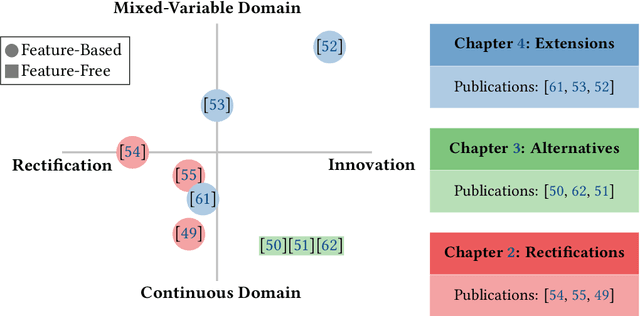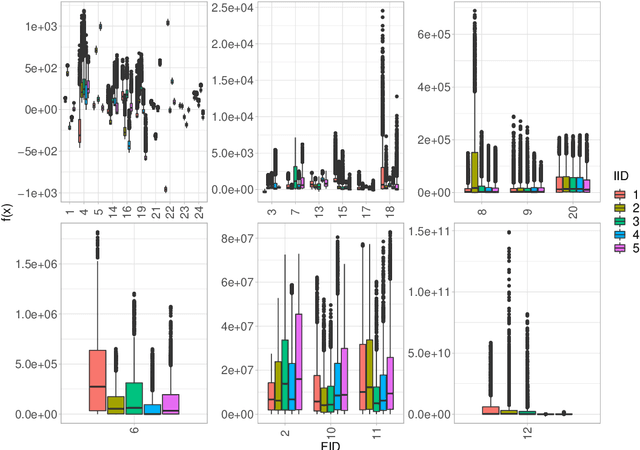Improving Automated Algorithm Selection by Advancing Fitness Landscape Analysis
Paper and Code
Dec 05, 2023



Optimization is ubiquitous in our daily lives. In the past, (sub-)optimal solutions to any problem have been derived by trial and error, sheer luck, or the expertise of knowledgeable individuals. In our contemporary age, there thankfully exists a plethora of different algorithms that can find solutions more reliably than ever before. Yet, choosing an appropriate algorithm for any given problem is challenging in itself. The field of automated algorithm selection provides various approaches to tackle this latest problem. This is done by delegating the selection of a suitable algorithm for a given problem to a complex computer model. This computer model is generated through the use of Artificial Intelligence. Many of these computer models rely on some sort of information about the problem to make a reasonable selection. Various methods exist to provide this informative input to the computer model in the form of numerical data. In this cumulative dissertation, I propose several improvements to the different variants of informative inputs. This in turn enhances and refines the current state-of-the-art of automated algorithm selection. Specifically, I identify and address current issues with the existing body of work to strengthen the foundation that future work builds upon. Furthermore, the rise of deep learning offers ample opportunities for automated algorithm selection. In several joint works, my colleagues and I developed and evaluated several different methods that replace the existing methods to extract an informative input. Lastly, automated algorithm selection approaches have been restricted to certain types of problems. I propose a method to extend the generation of informative inputs to other problem types and provide an outlook on further promising research directions.
 Add to Chrome
Add to Chrome Add to Firefox
Add to Firefox Add to Edge
Add to Edge